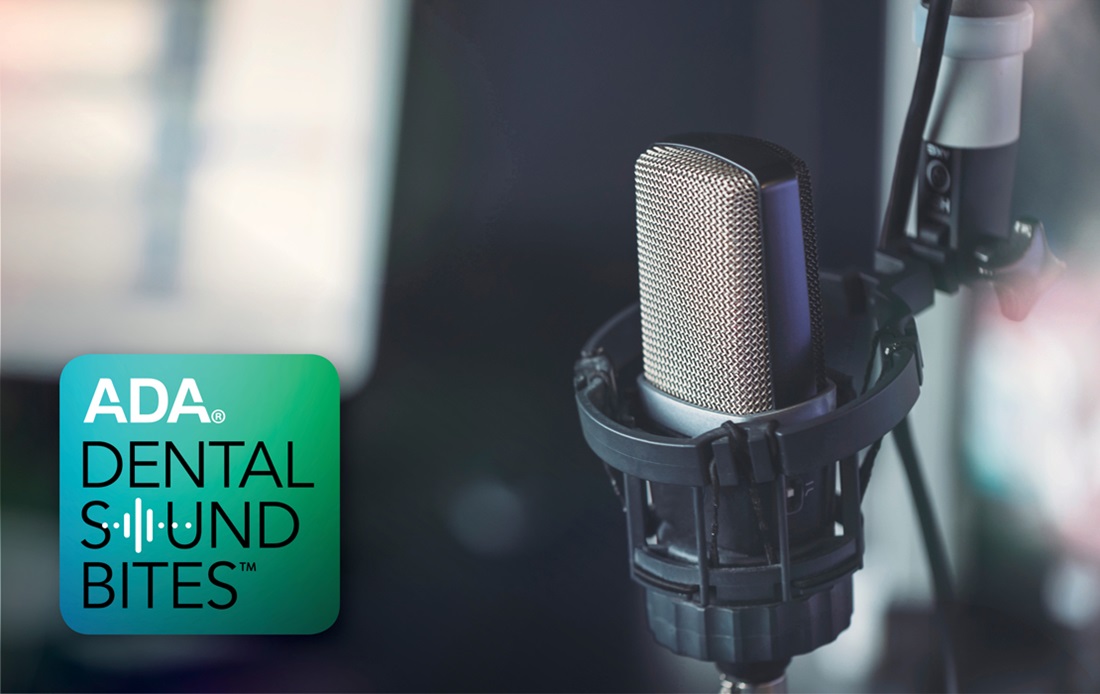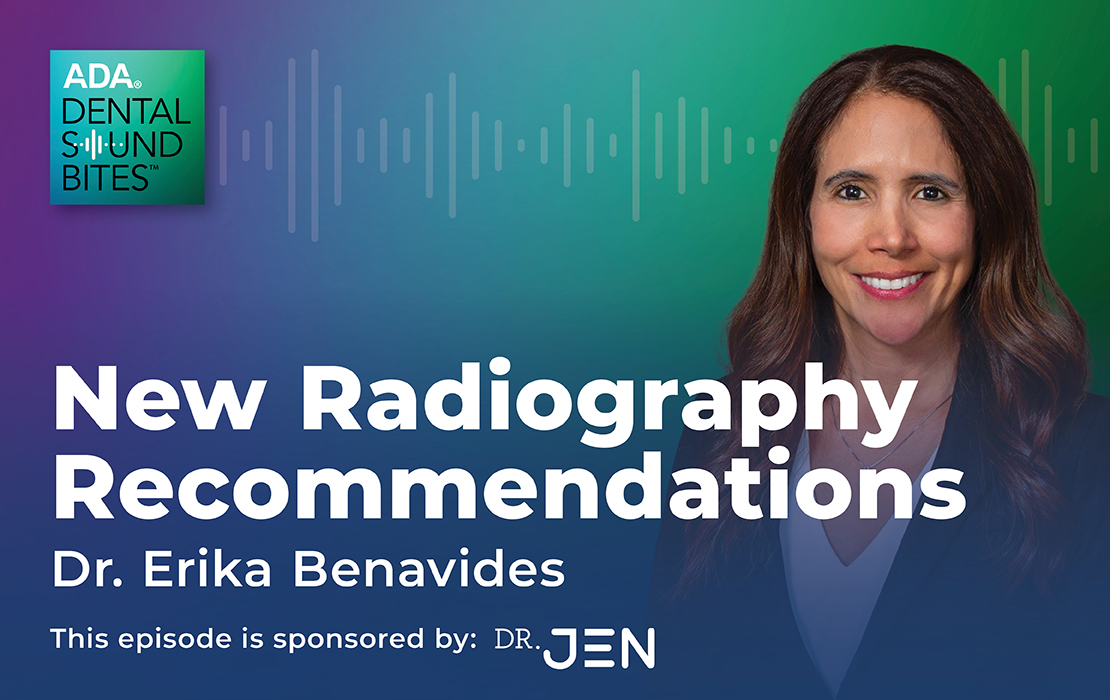You can also listen on the ADA Member App and enjoy bonus content.
Dental Sound Bites™ podcast
Real talk about dentistry’s daily wins and sticky situations from the ADA’s flagship podcast. Our hosts will chat with expert guests and share their perspectives on topics and trends that spark your curiosity and fuel your career.
S7 E03: New Radiography Recommendations
A look at the updated radiography recommendations to enhance safety in dentistry.
Listen + Subscribe

ADA's HPI shares a look at the research and hot topics shaping dentistry this year.

A conversation on leadership and what the future of our profession could look like.
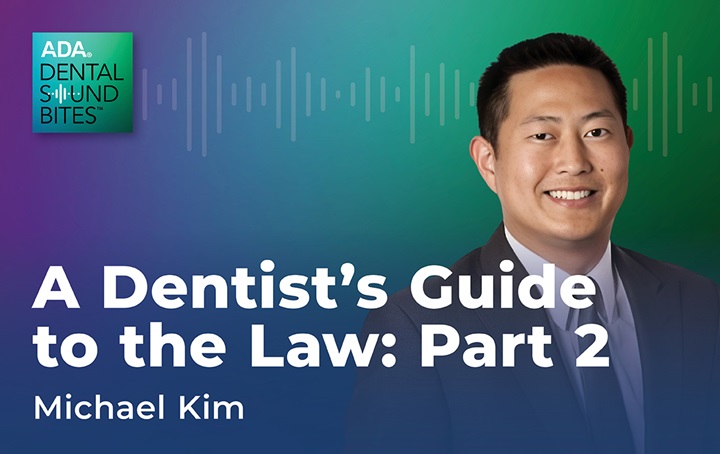
More legal insights for dentists. Part 2: Legal tips to support your team, practice, and patients.

How to talk to patients about dental misinformation.
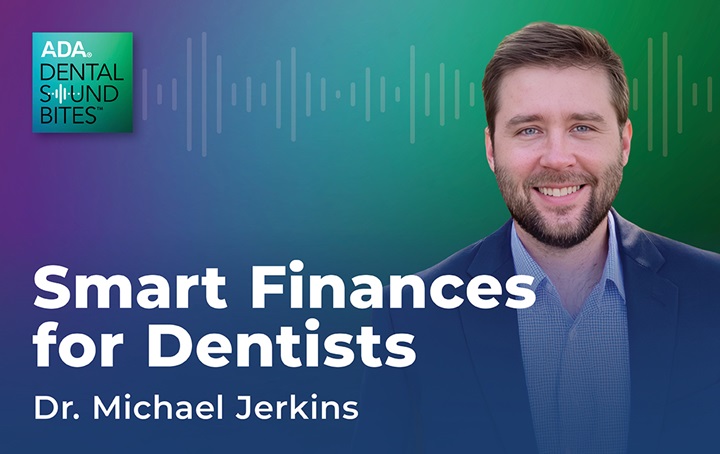
Dollars and decisions — real talk on loans, buying a practice, and building your future.
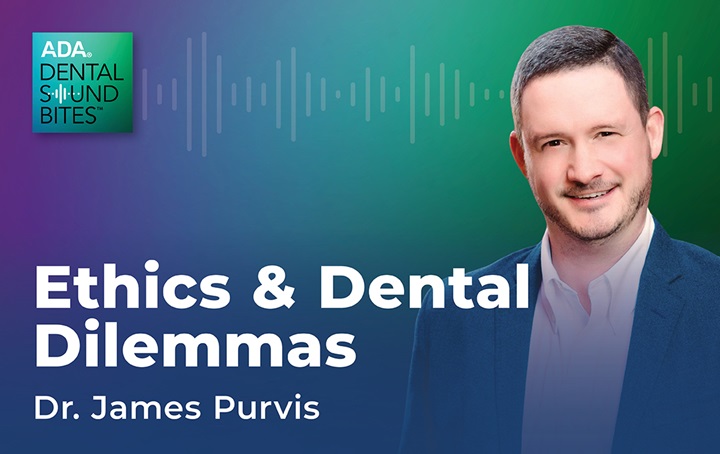
Uncomfortable conversations and sticky situations; Exploring the ethics of dental dilemmas.
Awards + Recognitions





The views and opinions expressed in this program are those of the speakers and do not necessarily reflect the views or positions of the American Dental Association.
